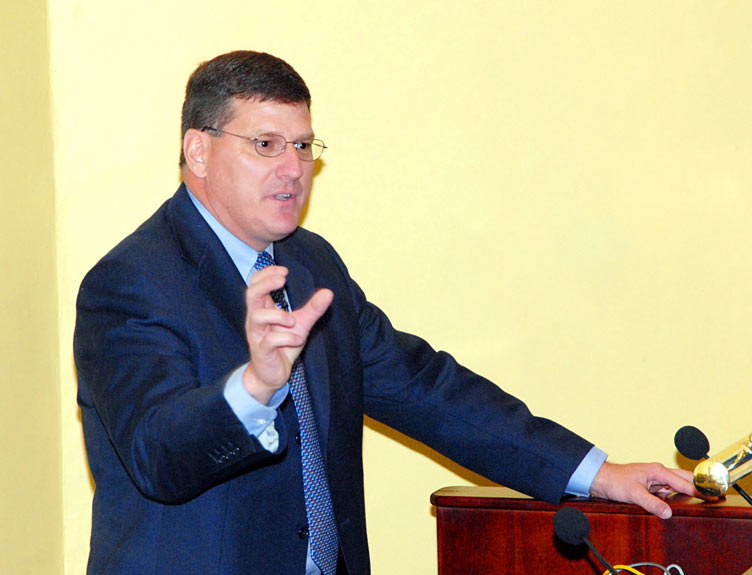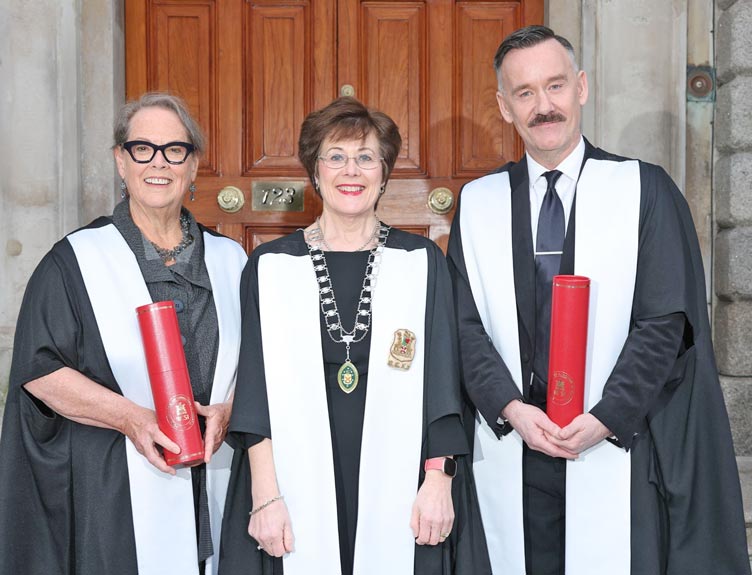Former Iraq weapons inspector Scott Ritter speaks at RCSI

Scott Ritter, former United Nations Weapons Inspector in Iraq and critic of the United States foreign policy in the Middle East spoke at the second annual Department of Molecular and Cellular Therapeutics (MCT) lecture at RCSI last evening.
The lecture was entitled ‘The science and politics of searching for weapons of mass destruction’ and was delivered to a packed Albert Theatre.
Scott Ritter is most noted for being a critic of United States foreign policy in the Middle East stemming from his experiences as a United Nations weapons inspector in Iraq. Prior to the US invasion of Iraq in March, 2003, Ritter repeatedly stated that Iraq possessed no weapons of mass destruction (WMDs). Because of the prevailing political climate in the United States at the time, Ritter was widely condemned for this position, which later proved to be largely accurate.
Professor John Waddington, Head of the MCT Department in RCSI, said: “In this series of lectures, we invite prominent individuals to address topics of major general interest, looking beyond biology and medicine. Scott Ritter has contributed substantively, both scientifically and politically, to one of the most controversial world events of the past decade and we look forward to hearing his perspective.”
Ritter, a former US marine, served from 1991 to 1998 as a UN weapons inspector. His was charged with finding and destroying all weapons of mass destruction and WMD-related manufacturing capabilities in Iraq and was chief inspector in fourteen of the more than thirty inspection missions in which he participated.
When the United States and the UN Security Council failed to take action against Iraq for their ongoing failure to cooperate fully with inspectors Ritter resigned from the United Nations Special Commission
In his talk at RCSI he discussed both the scientific and technical elements of weapons inspection and offered his views on the political climate that currently dictates US foreign policy in the Middle East.



